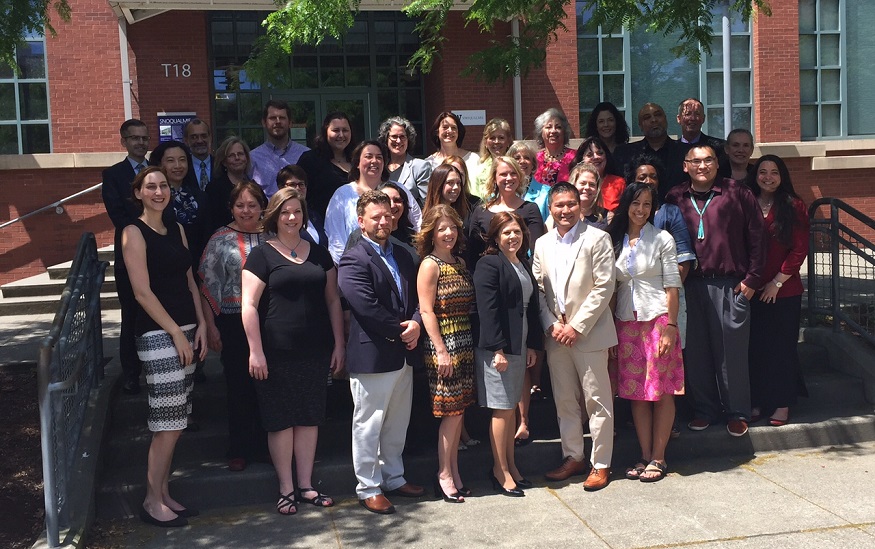Students Express Responsibility for Ending Racism on Campus
Students in the Ed. D. program wrote an opinion piece that was published in The News Tribune expressing their concerns about racism and violence on the UWT campus.
Wilbur, the chief author of the article, explains that the cohort is “a department of education and a department of health-care leadership combined as a way to grow leaders in K-12 and in the higher-end administration. The members are mostly vice presidents and deans from community colleges,” she said.
According to The News Tribune, these students, “understand our responsibility to call out injustice and work toward solutions which create opportunities for equity throughout our society.”
The students have spoken out to address their own individual support for student activism, the Black Lives Matter movement, and the termination of violence and “hateful rhetoric” against people of color at UWT.
Wilbur says her reasons for writing the story are the Missouri hunger strikes and the walk outs at Western Washington University.
One of the motives is the hunger strike occurring in Missouri. At most college campuses, black students are underrepresented, yet not as badly as at the University of Missouri. In 2010, harassers left a pile of cotton balls outside of the university’s Black Culture Center, an attempt to evoke images of slave labor on cotton plantations. In 2011, a statue on campus was sprayed with racial slurs. The newest hunger strikes came from the student body president, Payton Head, claiming a group of white men in a pickup truck drove by him shouting racial slurs.
After multiple black students on Mizzou’s campus dealt with similar situations, the story went viral, prompting Head and his peers to demand a response from Tim Wolfe, president of the University of Missouri system. After students reached out to him and got no response, they staged a protest blocking Wolfe’s car. When that drew no reaction, the students wrote a list of demands asking for Wolfe’s resignation, a handwritten apology, and an increase in black faculty.
These students named themselves Concerned Students 1950, based on the year black students were admitted to the university. On Oct. 24th, 2015, a swastika made out of feces left in a campus bathroom caused tensions to increase. After the demands continued to be denied, Jonathan Butler, a leader on campus, said he would go on a hunger strike if Wolfe continued to serve as president. In support, the university’s football team followed in Butler’s steps and stated they would not play until Wolfe was fired or decided to resign. Due to this, Wolfe resigned shortly after, on Nov. 9th, 2015.
Another reason behind the motive of The News Tribune article was due to Western Washington students hosting a walk-out of class. “The students gathered on building steps to talk about what they felt concerning racism, as well as microaggressions happening on their campus,” Wilbur said.
When asked what specifically the cohort will be doing to end racism in our community, Wilbur said they’ve learned in their program to recognize racism when it is occurring. She also said that they’ve learned the value of listening to students of color as a way to allow them to voice their concerns.
The cohort has many goals, one of them being the promotion of diversity. “Especially within our workplaces. We also strive to work towards increasing students of color on campus, and understand the need to be proactive about hiring faculty,” she added.
To read the students’ op-ed piece and learn more about their concerns, visit thenewstribune.com and search for ‘UWT.’







